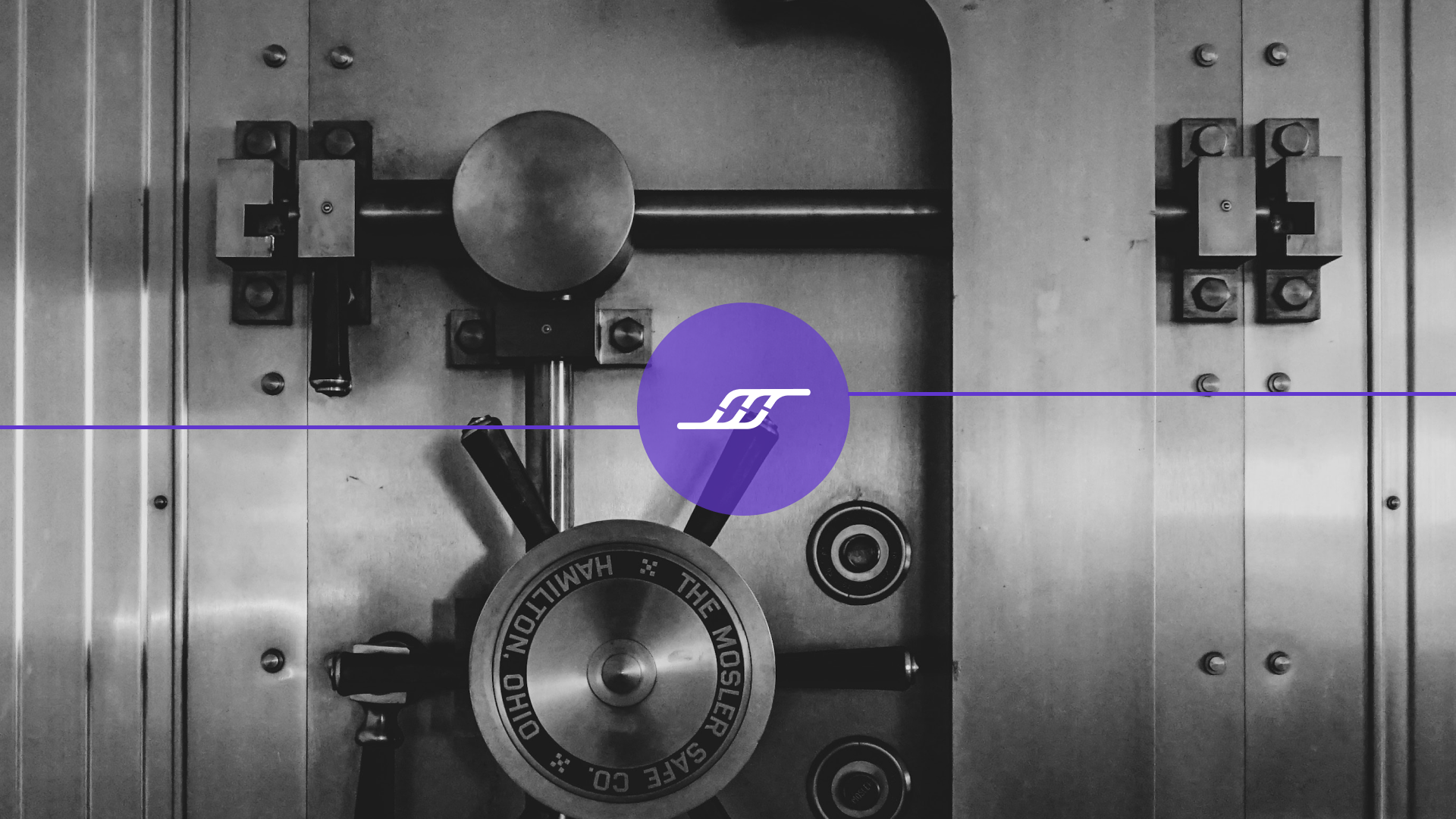The cloud offers unparalleled convenience and flexibility for businesses. It allows organizations to store and process vast amounts of data efficiently, enables accessibility, collaboration, and sharing, and offers advanced data security.
 However, as businesses embrace the cloud, they must also address the critical aspects of data security and compliance in the cloud. Protecting sensitive information, securing privacy for clients and partners, and maintaining regulatory compliance are paramount considerations for any organization operating in the cloud.
However, as businesses embrace the cloud, they must also address the critical aspects of data security and compliance in the cloud. Protecting sensitive information, securing privacy for clients and partners, and maintaining regulatory compliance are paramount considerations for any organization operating in the cloud.
Ensuring your data is secure and compliant in the cloud is not just a best practice;
it is a strategic imperative that can:
- Safeguard your business against cyber threats
- Build trust among stakeholders
- Ultimately, it drives sustained growth and success
This article explores the importance of data security and compliance in the cloud and why it's good for business. We also provide valuable insights and best practices to help enterprises navigate this dynamic landscape and reap the benefits of a secure and compliant cloud environment.
Understanding Data Security and Compliance in the Cloud
Data security protects data from unauthorized access, use, disclosure, alteration, or destruction. It involves implementing measures and controls to safeguard data against cyberattacks, breaches, and loss. Organizations must protect their sensitive data, such as customer information, intellectual property, and proprietary data, from unauthorized access and breaches.
Compliance, on the other hand, refers to adhering to legal, regulatory, and industry-specific requirements related to data protection and privacy. It ensures that data handling practices, storage, and processing activities align with applicable laws and regulations.
Since cloud computing involves storing and processing data on remote servers owned and managed by third-party service providers, businesses need to be mindful of and take steps to mitigate the risks and challenges regarding data protection. Companies are ultimately responsible for ensuring their data is secured and compliant, even in the cloud.
Why Should Your Business Care about Data Security and Compliance in the Cloud?
There are several reasons why a business would care about data security and compliance in the cloud. Chief among those reasons is that data security and compliance are essential for safeguarding data, mitigating risks, and ensuring legal and regulatory compliance.
Beyond that, they help organizations build trust with their clients, partners, and stakeholders. Demonstrating a solid commitment to protecting data privacy and adhering to regulatory requirements can enhance the reputation and credibility of a business.
In addition, organizations that implement robust security measures and comply with regulatory standards can minimize the risk of data breaches, disruptions, and costly downtime.
Compliance with data protection regulations is essential to avoid penalties, fines, and legal liabilities. Many jurisdictions have enacted strict data protection laws, such as the General Data Protection Regulation (GDPR) in the European Union, the California Consumer Privacy Act (CCPA), and Quebec Bill 64. Each of these imposes significant penalties for non-compliance.
By addressing these aspects, organizations can meet regulatory obligations, protect sensitive information, and maintain a strong compliance posture.
General Data Security Measures in the Cloud
Authentication and authorization are two fundamental concepts in cybersecurity that are often used together but serve distinct purposes in ensuring the security of a system.
- Authentication is about confirming who you are (identity verification).
- Authorization is about what you can do (permissions and access control).
 Authorization is about what a person can do (permissions and access control). Authorization controls ensure that users only have access to the resources, data, or functionalities they are explicitly permitted to use based on their role, group, or specific attributes. Enforcing strict access controls based on roles, responsibilities, and least privilege principles ensures that users have access only to the data they need to perform their tasks.
Authorization is about what a person can do (permissions and access control). Authorization controls ensure that users only have access to the resources, data, or functionalities they are explicitly permitted to use based on their role, group, or specific attributes. Enforcing strict access controls based on roles, responsibilities, and least privilege principles ensures that users have access only to the data they need to perform their tasks.
Authentication is the process of verifying the identity of a user, system, or entity. It ensures that the entity trying to access a system or resource is indeed who it claims to be. Authentication typically involves presenting credentials (such as a username and password) or providing evidence (such as a fingerprint, smart card, or biometric data) to prove identity. The main goal of authentication is to establish trust and prevent unauthorized access by confirming the legitimacy of the user or entity.
Data encryption also plays a vital role in protecting data confidentiality in the cloud. Encrypting data in transit ensures that information remains secure between users and cloud servers. Similarly, encrypting data at rest, whether stored in databases, file systems, or backups, ensures that it remains unreadable and unusable even if accessed without authorization. Employing robust encryption algorithms and adhering to industry best practices for key management is essential for adequate data protection.
Intrusion detection and prevention systems (IDPS) are critical components of a comprehensive data security strategy. These systems monitor network traffic, detect suspicious activities, and prevent real-time unauthorized access or attacks. By implementing IDPS solutions in the cloud, businesses can quickly identify and respond to potential security incidents, minimizing the impact and protecting their data from malicious actors.
Ensuring Compliance in the Cloud
Ensuring compliance in the cloud is crucial for businesses to:
- Meet regulatory requirements
- Protect sensitive data
- Maintain the trust of their customers
Here are some key ways a business can ensure compliance in the cloud:
Understand Regulatory Requirements
Start by thoroughly understanding the applicable regulatory requirements specific to your industry and geographical location.
Familiarize yourself with data protection laws, privacy regulations, industry-specific compliance standards, and other relevant cloud data handling guidelines.
Select Compliant Cloud Service Providers
Choose cloud service providers that have established a strong track record in compliance. Look for providers that adhere to recognized industry standards and have relevant certifications such as:
- ISO 27001 (Information Security Management System)
- SOC 2 (Service Organization Control)
- PCI DSS (Payment Card Industry Data Security Standard)
Ensure the provider's compliance framework aligns with your specific regulatory obligations.
Implement Data Classification and Access Controls
Classify your data based on sensitivity and regulatory requirements. Define access controls and permissions to restrict data access to authorized individuals or roles. Use role-based access control (RBAC) mechanisms to assign access rights based on job responsibilities and implement the principle of least privilege (PoLP) to ensure users only have access to the data they need to perform their tasks.
Maintain Data Privacy and Consent Management
Establish robust privacy policies and practices to protect personal and sensitive data. Obtain consent from individuals before collecting, processing, or sharing their data. Implement mechanisms for managing and documenting consent, such as consent management platforms or tools, to ensure compliance with privacy regulations.
Conduct Regular Compliance Audits and Assessments
Perform periodic audits and assessments to evaluate your cloud environment's compliance with relevant regulations and internal policies. Includes reviewing access controls, data handling processes, security measures, and incident response procedures. Identify any compliance gaps or vulnerabilities and take appropriate remedial actions to address them.
Automated tools like vanta.com and others help lower the burden of continuous audit and assessment.
Employee Training and Awareness
Educate your employees about compliance requirements, data handling best practices, and the importance of regulatory compliance in the cloud. Conduct regular training sessions to raise awareness about security risks, data privacy, and their responsibilities in maintaining compliance. Foster a culture of compliance and provide channels for reporting any compliance concerns or incidents.
By implementing these measures, businesses can demonstrate their commitment to compliance in the cloud and effectively navigate the complex regulatory landscape while safeguarding sensitive data and maintaining the trust of their stakeholders.
 Snowflake’s Cloud Security: Built-in, not bolted on
Snowflake’s Cloud Security: Built-in, not bolted on
Infostrux is a proud Snowflake Elite Services Partner, so we would be remiss if we didn’t discuss Snowflake’s Cloud Security. Snowflake delivers rigorous security solutions for data storage. A key advantage of using cloud providers is the opportunity for your business to utilize their high-end security features, including data redundancy, backup protocols, and contingency plans for disasters. These strategies contribute significantly to protecting against data loss and guaranteeing the uninterrupted operation of your business. Continual data backup and enforcing sound retention policies are fundamental in shielding against data loss from unpredictable occurrences, such as hardware breakdowns or natural catastrophes.
Robust Data Security
Snowflake enables you to safeguard your data with advanced features, including dynamic data masking and comprehensive end-to-end encryption for both data in transit and at rest.
Adherence to Government and Industry Security Standards
Snowflake's government deployments hold a distinguished Federal Risk & Authorization Management Program (FedRAMP) Authorization to Operate (ATO) at the Moderate level. Furthermore, their compliance extends to ITAR, SOC 2 Type 2, PCI DSS, and HITRUST, assuring industries, as well as state and federal governments, of the robust security standards upheld by Snowflake.
Infrastructure Security & Resilience
Snowflake harnesses cutting-edge cloud security technologies to ensure unparalleled protection for your most intricate and demanding data workloads.
Read more:
- Snowflake's Security & Compliance Reports
- Snowflake Security and Trust Center
Using a Proactive and Multi-faceted Approach for Data Security and Compliance in the Cloud
Data security and compliance in the cloud require a proactive and multi-faceted approach. By conducting regular risk assessments and threat modeling, developing a comprehensive safety and compliance strategy, engaging in continuous monitoring and incident response, providing ongoing employee training and awareness programs, and collaborating with cloud service providers for shared security responsibilities, organizations can establish a strong foundation for data security and regulatory compliance in the cloud.
Ultimately, this is good for businesses who want to:
- Safeguard their business against cyber threats
- Build trust among stakeholders
- Drive sustained growth and success
To mitigate the potential risks and ensure data security and compliance in the cloud, businesses should stay updated with the evolving regulatory landscape to ensure compliance with applicable laws and regulations.
To assess your data security and compliance posture, please contact us today for a free consultation.




